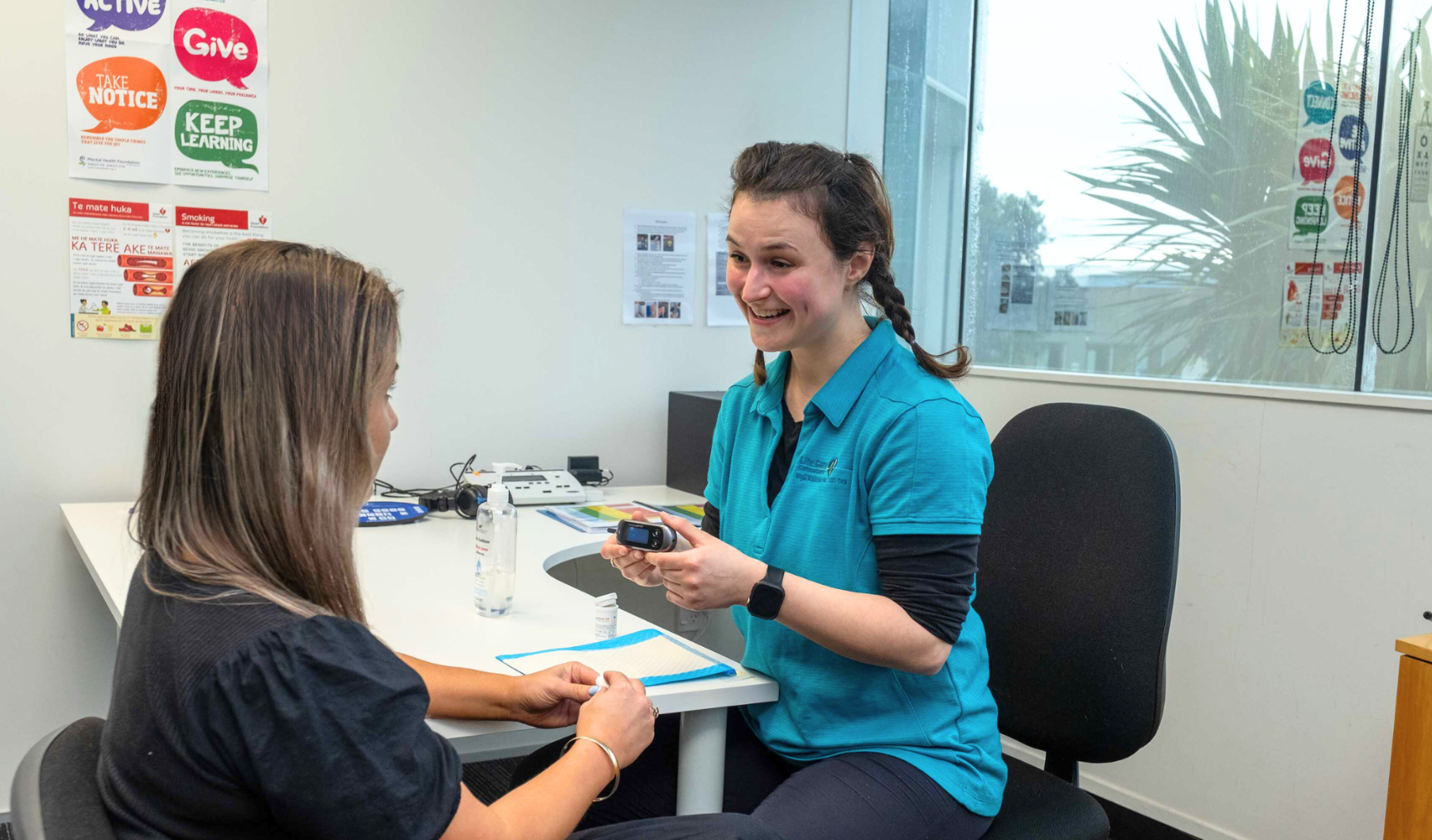Life Care Consultants: How adaptability led to 30 years of business success
Life Care Consultants have gone from strength to strength in 30 years, even as New Zealand changed dramatically around them. How did they manage it?

Contents
Nobody starts a business without some big dreams. Every year, Kiwi businesses are founded and set on a path to navigate the challenging waters of the New Zealand market. Many won’t last the test of time but a few will – and understanding how they managed it is the secret sauce that many business owners can only dream of.
We wanted to speak to one of those organisations that has outlasted many in their field, to uncover the secrets of their success.
That led us to Life Care Consultants, a business health and training organisation. This business started in a tiny office in Cambridge, Waikato back in 1994, and despite the overwhelming odds, has gone from strength to strength in 30 years, even as New Zealand changed dramatically around them. How did they manage it? We spoke to Life Care Consultants CEO, Kim Rutherford, to find out…
A clear mission
As so often with strong businesses, Life Care was born to fit a need that no one had fully realised yet. Life Care was founded by Janet Brothers, who saw a gap in the market for comprehensive first aid training in workplaces that could be done quickly but effectively. As Kim describes,
“Janet was incredibly innovative in the market, delivering her training in one day when all of the other providers were doing it in two.”
It required plenty of knowledge and building connections to get Life Care off the ground – and all from Janet’s office in Cambridge. Now, almost 30 years later, Life Care has blossomed beyond offering first aid training, moving into looking after the overall wellbeing of Kiwi workers as well. The company provides health checks, health and wellbeing workshops, injury management support and training around mental health in the workplace.
In turn, Life Care’s team has grown from one visionary to a flourishing business made up of workplace wellbeing experts. Kim says,
“From starting from one small office and then it created a team of almost 100 people. It was really, really impressive.”
 Life Care’s strengths
Life Care’s strengths
So what was the secret to its business growth and success? Certainly, some can be attributed to Life Care’s ability to transform with the times. As Kiwis’ awareness around wellbeing at work has grown, so too has their offering.
There’s also something to be said for maintaining the strong relationships that started the business in the first place. For Kim, she attributes it to the Life Care team’s approach to the people they employ, and those they work with.
“The thing that has been the secret to our success is that we care really deeply about our customers and our people. This year, we’re celebrating 30 years in business, and we’re proud to say that many of the companies who partnered with us at the start are still with us today. “A number of staff who were right there at the beginning of the journey are still working for us today. So that I think is really a unique piece of Life Care and that’s what sets us apart from competitors.”
Building a team that feels supported and enjoys their work is something that as a CEO, Kim is really passionate about. She keenly describes the level of support that her team have sought to enact within the organisation, so that everyone feels heard.
“We’ve done a lot of work here on our EVP [Employee Value Proposition] to ensure that as leaders, we understand the roles in the task from an employee’s perspective, and also the challenges they face within that work environment. And then I think the other thing people forget a little bit is recognition and appreciation – a simple little ’thank you’ to someone can go such a long way. All of those little bits really help to build the culture.”
To maintain and build those strong relationships with their customers, Life Care staff are encouraged to complete their best work. That includes ensuring that everyone is accredited and can offer specific services to each client.
“We have a whole team of expert training instructors who provide really engaging and educational courses. We also offer a tailored solution. Many of our customers have unique requirements that sit across different industries, soo we’ve been able to offer flexible and tailored solutions for those clients. “I think the other thing that was really important to Janet was accreditation, so she worked really hard over a number of years to become a Category One excellence training provider under the NZQA standards. And that’s the standard that we’ve maintained in the business for many years now.”
Life Care’s secret to success is a mix of the old and the new – understanding what worked in the early days of that Cambridge office, creating strong relationships with team members and clients that last the test of time, but also changing with the times. Janet and her team could have stayed with first aid training, but chose instead to expand their service offering in a way that matched the demands shown in the market. Now, it’s a thriving business with Kim at the helm.
 Facing the challenges
Facing the challenges
Of course, no business is without its challenges and 30 years in the market was never going to be entirely smooth sailing. One of Life Care’s strengths – their innovation – was also one of its biggest challenges. As Kim describes,
“One of the biggest challenges for Life Care has been the evolution of the market. Customer preferences have shifted, technologies advanced rapidly. So you have to actually innovate as you go through those different changes in each of those areas.”
That innovation extended beyond their customer offerings, too. The team had to adapt as the business itself changed over time.
“The other big challenge for us was the evolution from a small owner-operated business to a corporate business. So as a business grows, you have to change and that for us involved process change, culture change, product changes, technology changes. personnel changes, and all of that came with challenges.”
What did they take from those difficult periods in the business? For Kim and her team, it was a learning experience.
“I think what we took from it is that, as a business, we’re quite adaptable. We adapted our strategy, we changed products and processes accordingly. We also focused on our customer feedback and what they were wanting, and that allowed us to deliver some extra added-value solutions for them, which maintains loyalty and retention.”
Looking into the future
With 30 years under its belt to celebrate, it’s time for Life Care to look ahead. For Kim, as CEO, she has two key focuses in the coming years on top of remaining a leading provider of training and health services in New Zealand.
The first is Life Care’s people. As Kim describes it, “[I want] our employees to see Life Care as an employer of choice. And to see new people wanting to join to work for an organisation like Life Care.”
As well as that work completed on their EVP, the Life Care team are working hard on ensuring that they’re listening to every employee on the team. What does that look like in practice?
“We run regular engagement surveys and feedback surveys that are often anonymous so that we can get some really accurate feedback from our team. And then it allows us to correct anything before it becomes a bigger issue, and we then openly share the results of those. We also have worked on our competency and training programs for our team. So as we employ a new person, they come into the business and obviously go through a training program that forms their career path within Life Care.”
In addition, they’ve completed work on their benefits package, from celebrating staff anniversaries with gift vouchers to Employee of the Month awards. As workplace wellbeing specialists, they’ve made sure they walk the walk at home too, offering EAP services and wellbeing incentives to make sure team members are supported.
 Second on Kim’s list of priorities is technology. Life Care currently uses Employment Hero to support their team with HR, culture and payroll, as well as Xero for accounting and Monday.com for day to day work. Then there’s of course the operating systems they use for customer services, with a new health operating system in the works to streamline how data flows through their business.
Second on Kim’s list of priorities is technology. Life Care currently uses Employment Hero to support their team with HR, culture and payroll, as well as Xero for accounting and Monday.com for day to day work. Then there’s of course the operating systems they use for customer services, with a new health operating system in the works to streamline how data flows through their business.
That’s not all – Kim is enthusiastic about the future of tech and what the growth of AI could mean for the business. She’s particularly excited about what AI developments could mean for their service offering, should they use it for data.
“Data and analytics for us is the next big thing. How do we give real meaningful insights back to our customers so that they can make really informed decisions? The exciting thing for the future for us would be looking at some of those new and emerging technologies and how AI can run through them.”
A healthy outlook
Navigating the choppy waters of starting and growing a business isn’t always easy, but the team at Life Care managed it. Started by Janet Brothers’ hard work and vision, the company has grown and changed with the evolving landscape of New Zealand workplaces. Now, Kim and the team are feeling optimistic about the future. As Kim says in our chat,
“We’re in a place where it can only go forward and be better and bigger as we move through the years.”
In summary: Life Care’s secrets for success
- Deep care for customers and employees: Life Care places a strong emphasis on caring deeply for their customers and employees. This commitment has led to lasting relationships with clients and staff, many of whom have been with the company since its inception.
- Building a supportive and appreciative team culture: Life Care has focused on creating a supportive work environment where employees feel heard and appreciated. This includes understanding the challenges employees face, offering recognition and appreciation, and developing a robust Employee Value Proposition (EVP).
- Adaptability and innovation: Life Care’s ability to innovate and adapt to changing market conditions has been crucial. They continuously evolve their service offerings, adapt their strategies based on customer feedback, and embrace new technologies to stay ahead in the market.
Related Resources
-
 Read more: SEEK Cut the Cord. Here’s What We’re Doing About It.
Read more: SEEK Cut the Cord. Here’s What We’re Doing About It.SEEK Cut the Cord. Here’s What We’re Doing About It.
Seek is ending Employment Hero’s API access. Read about what we’re doing and how we are building a faster and…
-
 Read more: Product Update: May 2025
Read more: Product Update: May 2025Product Update: May 2025
Follow our May 2025 product update as we share all of the latest and greatest features we’ve released over the…
-
 Read more: Product Update: April 2025
Read more: Product Update: April 2025Product Update: April 2025
Follow our April 2025 product update as we share all of the latest and greatest features we’ve released over the…










